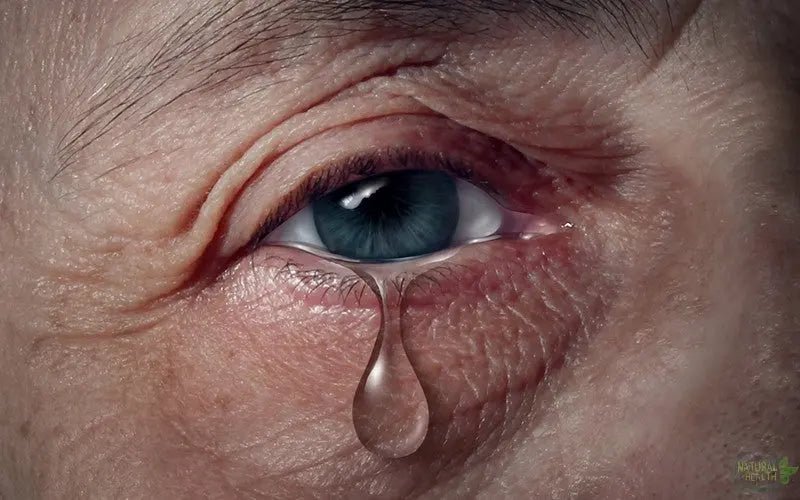
Could Depression Provide The Answers?
News reports recently published by leading psychiatrists are making bold assertions that will affect the way depression is understood and treated. Could being 'down in the doldrums' be nature's way of stimulating evolution?
Is Depression The Reason Humans Have Evolved So Quickly?
The human race has evolved exponentially compared to any other known species on earth, depression could be the reason why. After all, people are generally inherently lazy animals, for the most part unimaginative and happy to spend life treading water.
But occasionally, an inspired and highly motivated individual comes along who is able to single handily advance the human race, think Confucius, Plato, Aristotle, Galileo, Newton and more recently Einstein, Fleming, Hawking, a few names among potentially thousands.
Could depression be the common motivating factor that connects great people, the 'go-getters'. Driving them to keep searching, evolving because of a mysterious hunch. To single-handedly advancing the human race for the greater good of mankind.
Dr. Paul Keedwell from the Institute of Psychiatry, Kings College London, an expert in mood disorders thinks it might be.
Dr. Keedwell says, “depression is a natural defence mechanism that forces a healthy re-evaluation of current circumstance and thinking.” In fact, all humans could be susceptible to depression when faced with a set of circumstance that makes them stressed or fundamentally unhappy.
Continued Presence of Depression
The very fact that humans have evolved so far in comparison to the other species on Earth, poses the question, why has depression, if it is a negative human trait, not been jettisoned by the evolutionary process, the same process that has advanced humans far ahead of their fellow planetary inhabitants. The answer is simple, it hasn't been eradicated by evolution because it helps the human race advance and become stronger.
“There are benefits and that's why it has persisted. It's a tough message to hear while you are in depression, but I think that there's a life afterwards," he says.
"I have received e-mails from ex-sufferers saying in retrospect it probably did help them because they changed direction, a new career, for example, and as a result they're more content day-to-day than before the depression."
It's depression that helps the abused wife leave her husband, something she may not have been able to muster the courage to do without the introspection it provided.
Resilience
Several athletes & explorers accredit bouts of depression for giving them the strength to achieve, Dame Kelly Holmes previously spoke about the depression she experienced, and emerged from with the extra resilience to go on and become a double Olympic gold medalist, an achievement that she feels would have been beyond her prior to her depression.
The Creative Residue Left By Depression
Many creative artists experience periods of depression before emerging to produce some of their most inspired works. “Psychological unease can generate creative work and the rebirth after depression brings a new love affair with life,” he says.
Aristotle accredited depression for furnishing him with “great insights,” Sir Issac Newton suffered well documented psychological troubles during his life, as have Picasso, Beethoven, Bob Dylan, John Lennon and many other creative geniuses.
Was Caveman Depressed?
There is evidence to suggest that depression was present in Stone Age times, when man lived in very tight communities. Symptoms would quickly be recognised by the community and changes would ensue.
The Banda tribe, a remote community in Uganda are aware of depression, they call it “illness of thought,” sufferers are allowed to leave the group and spend time in reflection, maybe a form of treatment we could learn from.
Cases of depression are raising in Europe & US at exponential rates, probably due to increased pressures to achieve, be successful and purchase the latest consumer goods, combined with a breakdown in core family values and community.
Ineffective Anti-Depressants
Recent reports suggest that anti-depressants have little or no effect on mild or moderate depression, a staggering fact considering that antidepressants are now the most commonly prescribed drug in North America, with over 10% of the population consuming them. There were no benefits over placebo pills in experiments conducted in the US.
If you are currently taking prescribed anti-depressants you should seek professional advice before stopping prescriptions, read more here. As the experiment only applies to certain types of anti-depressants in certain situations.
Severe Depression & Anti-Depressants
Severe depression is effectively treated with anti-depressants, this article is focus on mild and moderate depression. Severe depression must be addressed by seeking professional medical advice.
Lonely Depths
There aren't many people who have suffered bouts of depression that would endorse it as a way of becoming enlightened or inspired. The darkness experienced while in depression is monotonous and chilling and shouldn't be wished upon any being.
But there is hope, the sun will shine again, the other side of the tunnel will be bearing gifts.
Sources:
